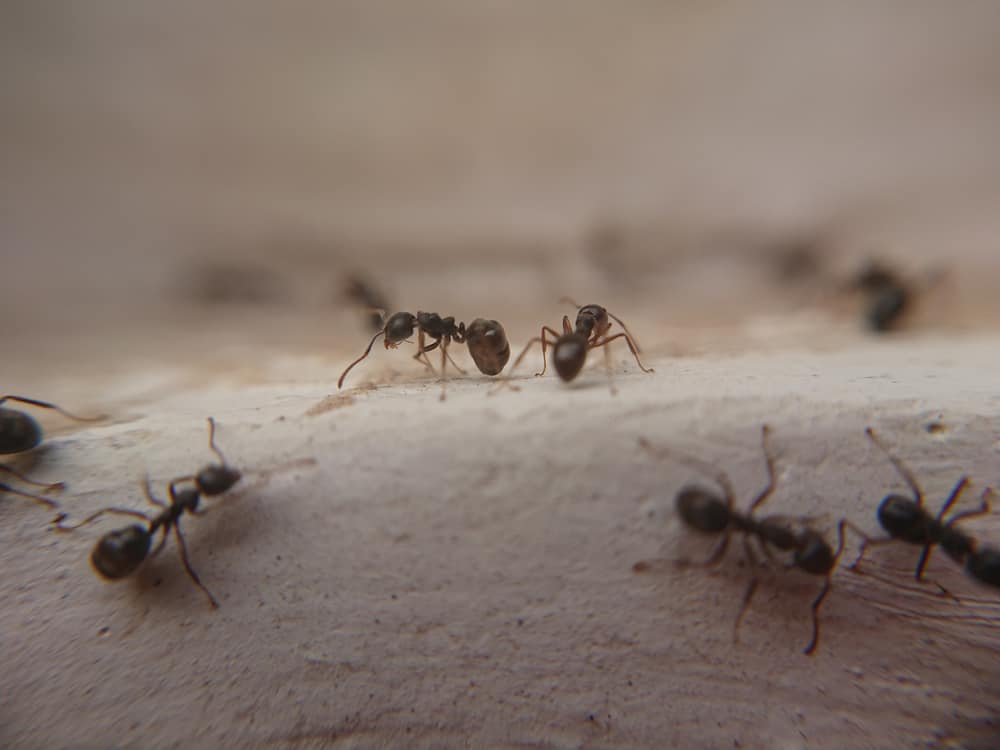Ants usually show up in the warmer months, creating ant hills in your yard and finding their way onto your plate of watermelon at a bbq. However, when these little insects find their way into your home through your windowsill and set up shop, they can be an extreme nuisance.
They accumulate in your pantry, in kitchen cabinets, and under your sofas, eventually disturbing your peace when you see creepy crawly ants crawling on your furniture and near your cereal box.
Luckily, with a few simple steps, you can prevent ants from coming in through the windowsill frame for good! Keep reading to find out more!
Why Are Ants Coming In Through My Windowsill Frame?
Before you can stop ants from coming into your home, it is important to understand why they come inside in the first place. Here are the most common reasons why ants may decide to use your windowsill frame to get inside your home.
1. They Are Looking For A New Food and Water Source
Like all living things, ants need sources of food and water. When an ant colony runs out of food, they send its colony in search of more food and water.
Ants have an impeccable sense of smell to make up for their tiny size and can carry weight up to twenty times their size! When they find food, they use their mandibles to break the food apart and carry it back to the queen and the rest of the colony.
2. The Weather Isn’t Hospitable
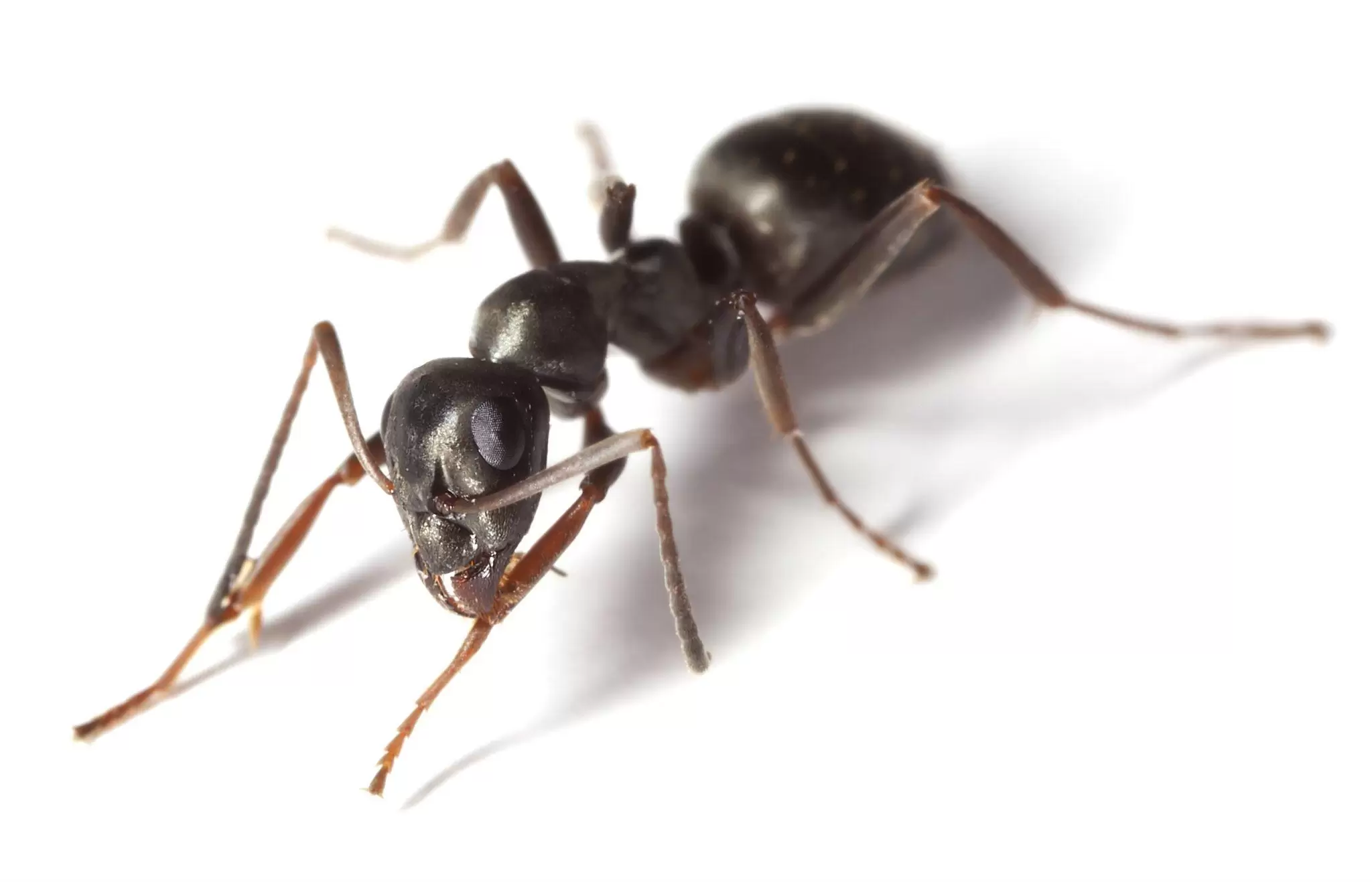
Image Credit: Pest Defence
Ants usually get their water from the morning dew and the damp, rich soil in the ground. However, when the climate is dry due to drought, ants will gravitate to an area where water is readily available. This is usually inside and around the outside of homes.
This is also true of periods of heavy rain. Although ants can sustain some rain, they usually seek refuge to stay dry.
3. They Are Looking To Relocate The Colony
Sometimes, ants find their way inside your home to relocate their colony. All ant species migrate their homes reasonably often, usually going where they can find the most food.
However, if you have a lot of rotting wood in your home, this could cause you to have a huge Carpenter Ant problem.
Carpenter Ants look for wet, rotting wood to build their nests and move their colonies. This could mean having thousands of ants crawling around in your walls or under your home. They are also attracted to windowsills because they usually have water damage.
How To Stop Ants From Coming Through Windowsill Frame
1. It Starts Outdoors
If you have noticed a bunch of ants coming in through your window sill, the first thing you need to do to prevent this is to tend to your yard and garden, even under your house.
These are the places ants like to set up their nests, and the closer they are to your home, the more likely they are to try to find a way inside.
You need to check the perimeter of your home for ant infestations, particularly in places with a lot of moisture, such as your garden or grass that has a sprinkler on it frequently. You must eliminate these nests and frequently spray them to prevent them from returning back.
2. Use Essential Oils
A good natural way to deter ants from coming in through your windowsill is to use essential oils around the area. Good essential oils that are known to repel insects are peppermint and cinnamon.
You can place a few drops around your windowsill a few times a week or make a mixture of the old in a spray bottle and spray the area daily.
3. Don’t Keep Plants Next To The Window
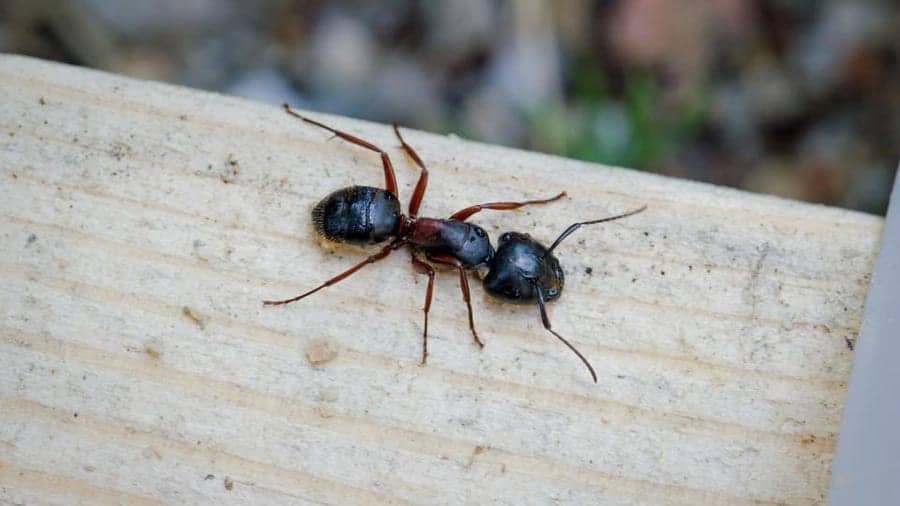
Image Credit: Forbes
Another way to prevent ants from coming in through your windowsill is to keep any vegetables or herbs away from the area.
Homeowners sometimes keep young plants near a window to ensure they get enough light, but this could attract ants since they need food and love to feast on vegetation.
Try getting a light made specifically for plants while they are being kept indoors so you can keep them away from your window.
4. Take Care Of Window Repairs
This one is big! You can take all of the precautions you want, but If you have cracks or damaged insulation on your windows, ants will inevitably use this as an entry point.
You should take care of any window repairs that may need to be done in order to prevent ants from creeping in through tiny cracks and crevices. Use caulk to cover any holes and open spaces in your window frame, and ensure the window has a tight seal.
You may need to use a form of foam insulation around your windows if the current insulation is damaged. While you are at it, it would also be a good idea to check your baseboards for cracks, too, as they could use them as an entry point as well.
5. Try Insecticides
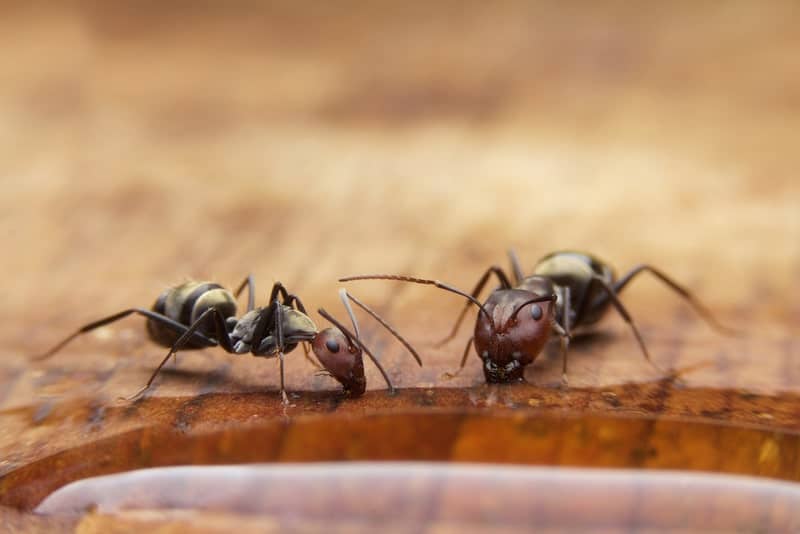
Image Credit: Terminix
If you want something more heavy-duty than essential oils, you can try insecticides. You can find insecticides in both powder and spray forms. Ant dust and Terro Spray are great options if you are ok with using chemicals. If you want to avoid chemicals, a great natural insecticide is diatomaceous earth.
Simply spray or scatter the insecticide around the perimeter of your windowsill, and the ants will die on contact when they enter.
Alternatively, you can try using white vinegar. Vinegar is not an insecticide, but it has been proven effective in repelling insects such as ants.
6. Use Ant Traps
If you don’t want to use an insecticide, you can set up ant traps next to your window. They make different types of traps, but glue traps are highly effective and are the best option if you have kids around. You can use an ant bait such as fruit to attract them to the glue trap.
An adhesive tape is also a good option if you have some already, and it works almost as well as glue traps. Just keep in mind that adhesive tape will leave a sticky residue behind when you take it up.
Be sure not to leave the adhesive tape on the surface for too long. The longer the tape sticks to the surface, the harder it is to remove. If it sits long enough, it may be almost impossible to get off.
7. Remove Their Food Sources
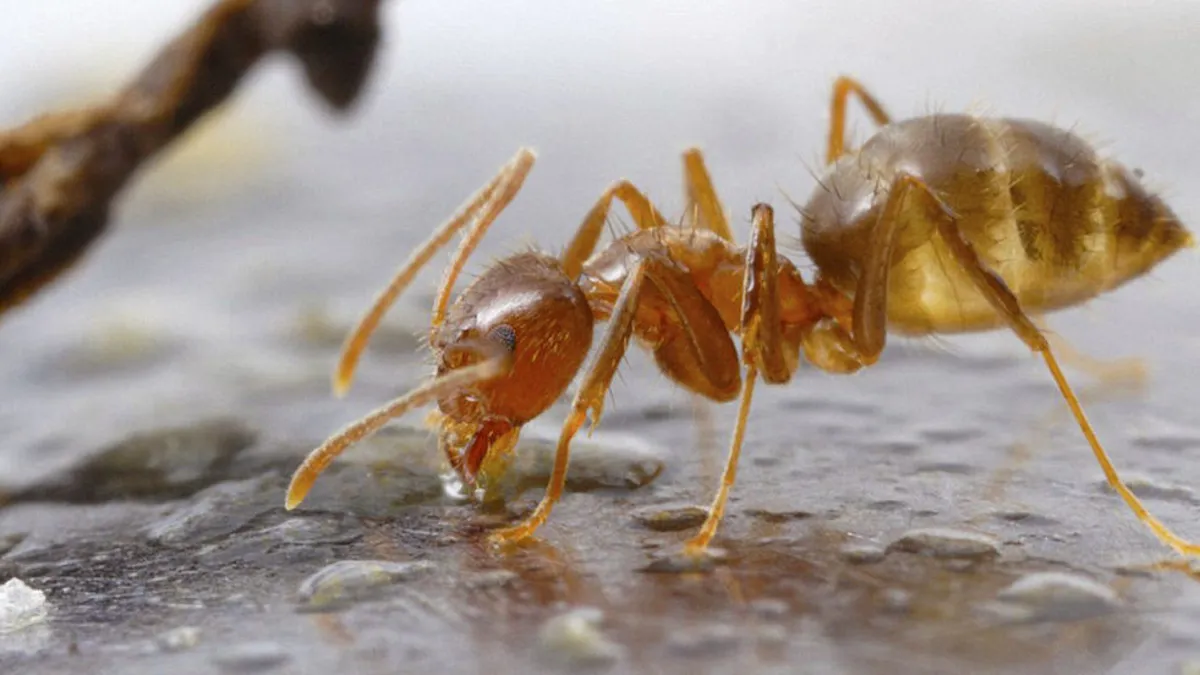
Image Credit: CNET
Another good practice to keep ants from coming in through your windowsill frame is to remove their food sources.
Frequently changing your garbage is one thing that will help tremendously. Try to change it every day so old food scraps are not staying in your house for too long.
Also, clean underneath your furniture regularly. Even when you are super careful, crumbs and food pieces have a way of ending up under your sofas and chairs, which is an all-you-can-eat buffet for ants.
You should also keep sugar, cereals, and other sweet substances in an airtight container or plastic bag so ants can’t access them.
Another good thing to do to keep ants from coming in through your windowsill frame is to keep dirty dishes out of the sink. Wash your dishes regularly so ants aren’t attracted to the food residue left behind on plates and bowls.
8. Hire A Professional
If you have an ant invasion that is way more than you can handle, or none of the above methods helped, consider hiring a pest control company to come to take care of the issue for you.
These professionals are trained to get rid of even the biggest ant infestations and will get things back to normal in no time.
Just keep in mind, depending on how many ants you have, you may be asked to leave the property for the day or even a few! Talk to the pest control company about the steps you need to take to ensure the process runs as smoothly as possible.
Conclusion
Ants come in through your windowsill for food and water or to build nests for their colonies. The biggest factors that attract ants are food debris and rotting wood, so eliminating these will help you substantially when it comes to stopping ants from coming in through your windowsill.
Have ants come through your windowsill before? If so, how did you fix the problem? We would love to hear about it. Let us know in the comment section below. We hope you enjoyed reading this article!
